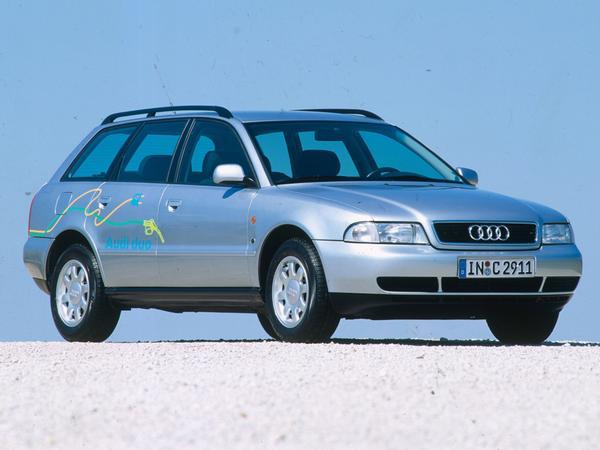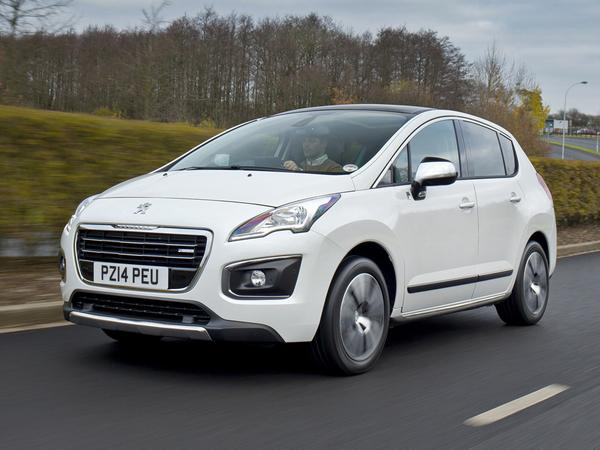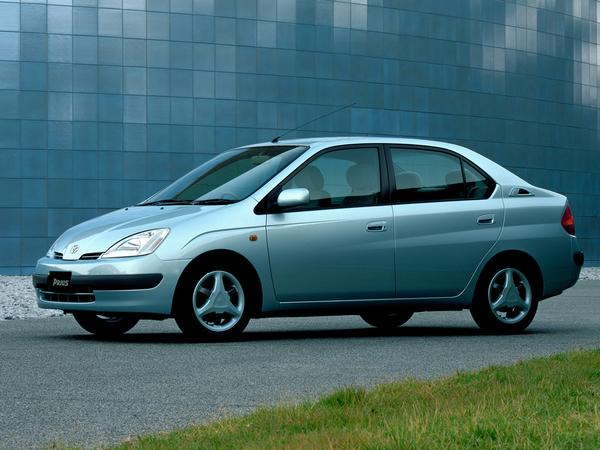PH Origins: Diesel-electric hybrids
The diesel-electric hybrid might seem a relatively modern development, but tech-focused Audi was well ahead of the curve

The concept, after all, is well proven - with the technology's origins dating back to the late 1800s. The development of petrol-electric hybrids continued apace from then on, with several small companies offering new systems as technology advanced.
As air pollution became a significant problem in cities, however, major manufacturers took more interest in the concept and began work on systems designed for mass production. Diesel engines were typically overlooked for automotive hybrid applications, though; in many markets diesel was expensive, and the engines themselves often proved heavier, costlier and less refined than their petrol counterparts.

The VW Group's subsidiary, Audi, took a similar interest in hybrid development - as it foresaw a time when conventional cars might be banned from city centres. The company, in particular, was keen to find a way to tackle excessive hydrocarbon and nitrogen oxide emissions and, in 1989, it introduced a prototype petrol-electric hybrid 100 Avant, called the 'Duo'. Its weight and cost again proved prohibitive but, as pollution continued to increase in urban areas, work on the concept persisted.
Audi revealed its third Duo concept, based on an A4 Avant and dubbed 'Audi Duo', at the Berlin motor show in October 1996. A 90hp 1.9-litre diesel drove the front wheels through a manual gearbox, while a 30hp electric motor drove the back axle - an arrangement later called 'through the road'. Audi claimed a 0-62mph time of 15.6 seconds, an all-electric range of 31 miles and an average economy of 79.4mpg.

The third-generation Duo was, in any case, Audi's first production hybrid and the world's first production diesel-electric hybrid car. Its onboard battery could also be recharged from the mains, making it the first production plug-in hybrid - some 14 years before the Volvo V60 Plug-in Hybrid was touted as trail blazing.
Audi envisioned 500 Duos being produced each year but several months later only 60 had been made. Cost was cited as the reason for a lack of commercial success, but feedback from real-world trials also proved underwhelming.

Other reports were similarly damning; when the Duo was unveiled in September, Toyota was also previewing its petrol-electric Prius. Its hybrid powertrain was reportedly more mature and, according to the Institute of Electrical and Electronics Engineers, likely to 'represent the defining hybrid configuration'. Interestingly, the report suggests that the Duo was available before the Prius, which was certainly the case in Europe, although the Toyota was unquestionably the first mass-produced hybrid.
Audi, finding no success with its expensive Duo, quietly dropped the concept. It wasn't until 2010 that it ventured back into the production hybrid field - and it took until 2012 for the next production diesel-electric hybrid to arrive, in the form of Peugeot's 3008 HYbrid4.
Peugeot's diesel-electric hybrid was predictably marketed as 'a first' but, in any case, it served to draw the technology back into the limelight. Many manufacturers, striving to meet ever-tightening regulations and demand, jumped onto the bandwagon - but, unbeknownst to them and despite technological advances, most were merely repeating what Audi had already encountered and achieved years before.
Lewis Kingston
Conversely n/a petrol doesn't lose anywhere near as much economy at m-way speeds, so 'complements' hybridisation better. So combining n/a petrol with hybridisation gives almost all of the benefits with significantly less risk/complexity (modern TD engine is notably more complex and more likely to fail at some point than a n/a petrol).
The REx is just a charge-booster, not like a diesel-electric train or ship, where it runs JUST off the charge from the generators. The Chevy Volt has an 80bhp motor for the generator - that's the sort of thing that's much more capable of properly powering the car rather than just helping the charge situation.
I think you might be overestimating the power consumption for a couple of plugs and some petrol injection, too, and underestimating the consumption for driving diesel common-rail injection. They can't be massively dissimilar these days.
I came to the conclusion that, as above, diesels would not sell well even as hybrids in the US (this was why Toyota went hybrid rather than diesel, for example) and diesel engines are much heavier than their equivalent petrol counterparts.
Petrol-Electric hybrids have to fight against their weight all the time, as do most electric cars of any shape or form. When you add in a diesel powerplant it becomes an even harder fight. This counter-balances the potential efficiency increase of having a diesel engine over a petrol engine.
When mated to a CVT as well the differences between petrol and diesel efficiency don't differ by all that much either, so if the benefits of using a diesel instead of a petrol become very small - but means you can sell your vehicles to the US, where diesel is a very dirty word - then why wouldn't you?
The next big thing will be combining an HCCI engine with a hybrid powertrain, followed by an HCCI rotary engine and a hybrid powertrain. This will all, in my opinion, end up being short-lived as full electric cars will increase in their development which will increase their efficiency and range.
You heard it here first, folks!
 lol
lolYou heard it here first, folks!
 lol
lolAlso the REX was deliberately designed (blame California) to only maintain the charge level and not increase it .. to stop owners only using petrol.
When you drive your car how often is your right foot buried in the carpet? Not very often at all really is it? That means that the engine is only loaded to about 25-35 percent during it's life hence reasonable fuel consumption but a waste of the engine's ability. Hybrid utilises all the ability by using the engine to drive the generator at the engine's most efficient speed which is also it's peak torque speed and therefore the engine stays at one speed rather than wasting fuel accelerating it's own internal mass and operating outside of it's torque peak. A correctly designed and applied diesel electric powertrain would work well if the noise from the engine could be contained at low road speeds and motor technology were able to provide 0-130mph wheel speed and torque while being as light and compact as a fwd gearbox and clutch assembly.
The problem is packaging. Cars are designed around the existing drivetrains that we've had for over 100 years and a modern piston engine driven car is a brilliant piece of packaging when you consider everything it has to do. This is why it is so very difficult to come up with something better for the same amount of outlay.
But you still can't get away from the increased weight and (emissions-driven) complexity of a diesel engine vs a petrol one.
...and if both are operating at their most-efficient sweet-spot, the effective difference is going to be largely driven by the different energy density between petrol and diesel...which isn't that much.
Conversely n/a petrol doesn't lose anywhere near as much economy at m-way speeds, so 'complements' hybridisation better. So combining n/a petrol with hybridisation gives almost all of the benefits with significantly less risk/complexity (modern TD engine is notably more complex and more likely to fail at some point than a n/a petrol).
1) Diesel engines are often heavier than petrol engines - so additional unwelcome weight to lug around may be one reason
2) The whole benefit of EV is not just noise reduction (petrol arguably better than diesel here also), but also the elimination of vibrations is also a big thing that EV drivers notice (again not a characteristic associated with diesels being better at than Petrol cars)
3) Diesel engines that use EGR need certain type of use (higher miles - longer distances) to ensure they don't get clogged up - again this may not be best suited to EV
4) With dieselgate - diesel is at odds with the 'green' credentials of the EV movement.
Conversely n/a petrol doesn't lose anywhere near as much economy at m-way speeds, so 'complements' hybridisation better. So combining n/a petrol with hybridisation gives almost all of the benefits with significantly less risk/complexity (modern TD engine is notably more complex and more likely to fail at some point than a n/a petrol).
I also see little point in talking about one exceptional/unusual scenario - every other country in Europe has a m-way limit of 110-130km/h.
Anyway - if you're running a 6-cyl TD or twin-turbo 4-cyl TD, or one of the brand-new 8/9-speed autos, then gearing does tend to be a little longer, but the majority of diesel engines used are 3/4-cyl single-turbos, with gearing such that they're on-boost in top gear* at +/-70mph (so say 110km/h). Which means their economy starts to drop from 50-60mpg down to ~40+mpg.
...and this is the sort of gearing that would be appropriate for the (smaller) engine used a diesel-hybrid. Can't see a 3-cyl 100bhp diesel pulling anything from a standing start (i.e. when batteries run-down) with a really long final-drive, and a 9-speed auto would add yet more weight and packaging issues.
- A non-turbo diesel running in 'generator' mode (a-la i3 REX) would definitely make for a more efficient hybrid, but would have the same limitations as any other 'range extender' hybrid. And more weight.
- The same engine running via a CVT (a-la Prius) would also be (a smaller degree) more efficient but the trade-off would be even more torrid performance if/when the batteries ran-out (think about driving a non-turbo diesel nowadays and how sluggish it is to accelerate vs even a medium-engine'd n/a petrol).
- Using a small turbo-diesel in a hybrid to offset the "without-battery" performance deficit mentioned in point-2 above would eliminate many of the efficiency gains vs an Atkinson-cycle n/a petrol hybrid in real-world driving* - as soon as that turbo spools-up, the fuel consumption wouldn't be far off that of the petrol.
...you WOULD gain a little "with battery" on-road performance (due to greater combined torque), but you'd also gain weight / complexity / additional failure points.
* The bench metrics, if mated to an auto or a CVT, would be fantastic, as the gearbox could be programmed never to reach high enough rpms to spool the turbo...but you'd never drive like that in the real-world.
Gassing Station | General Gassing | Top of Page | What's New | My Stuff





